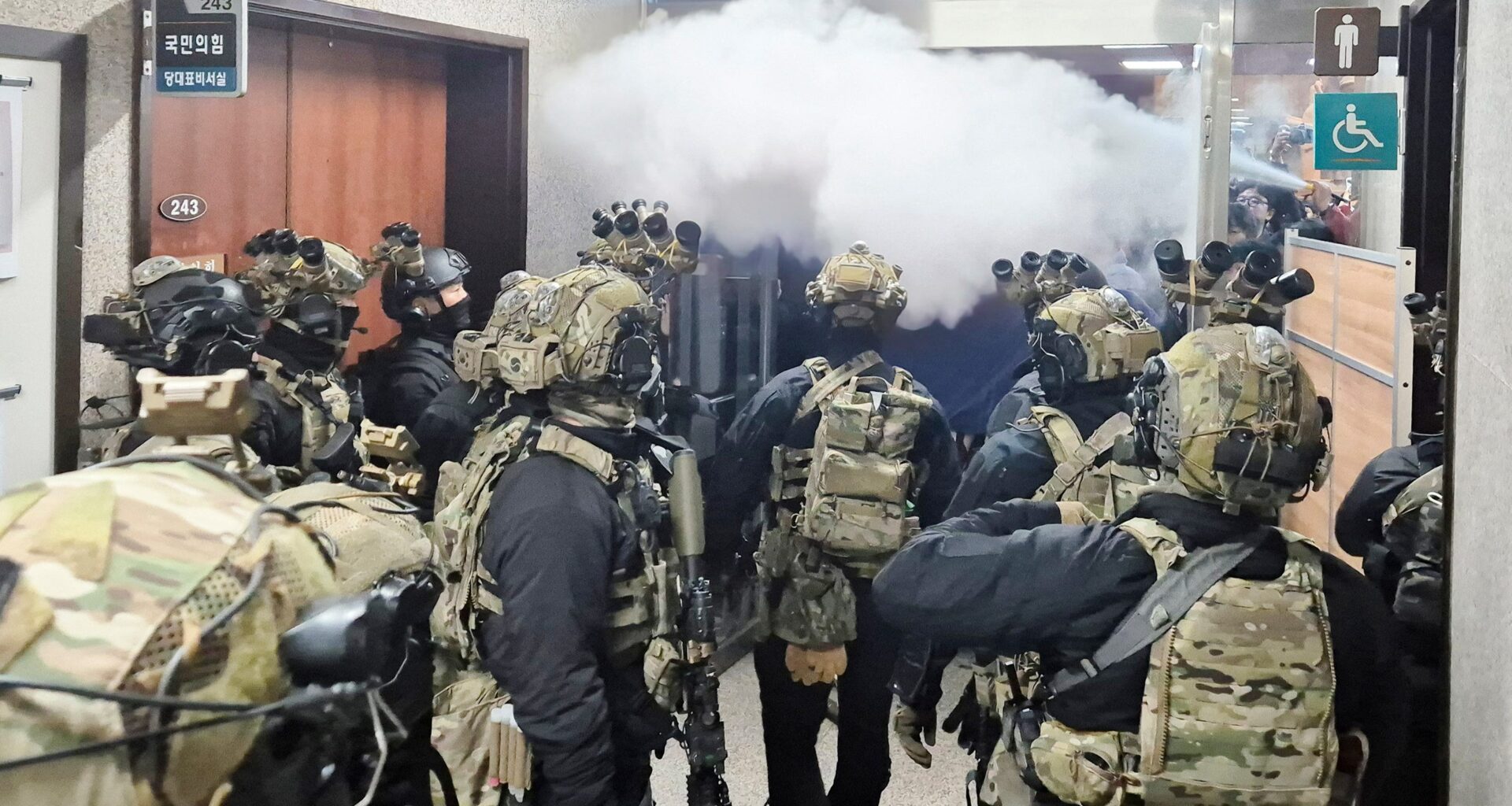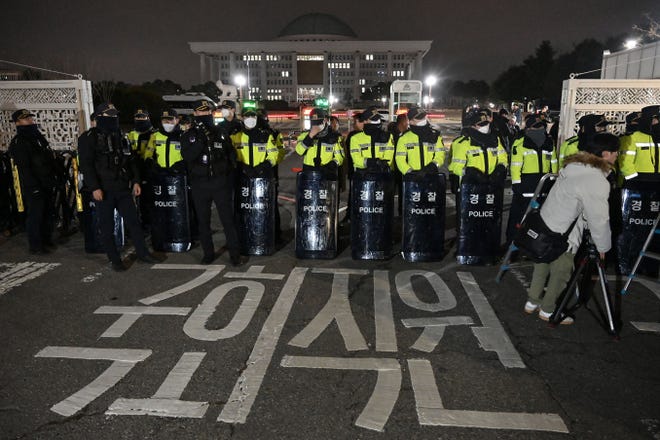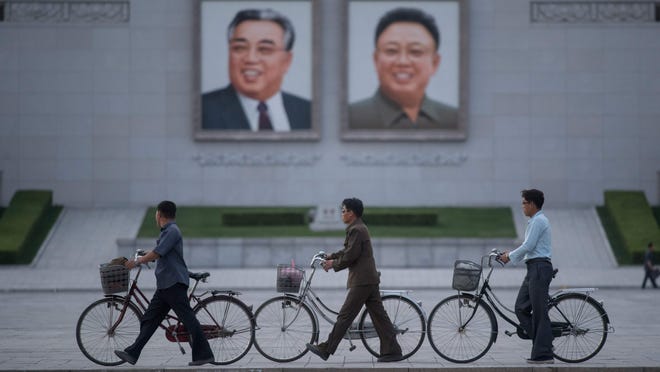South Korean President Yoon Suk Yeol declared martial law late Tuesday as he accused the country’s main opposition party of being overly sympathetic to North Korea and other “anti-state” activities.
Opposition leaders called the move unconstitutional and vowed to fight back. Parliament passed a motion requiring Yoon to lift his declaration. Photos and videos showed parliamentary staffers spraying fire extinguishers at armed marial law forces as they tried to breach the National Assembly.
The surprise declaration comes as Yoon’s People Power Party and the opposition Democratic Party were locked in a political battle over a budget bill.
Yoon said in a late-night television address that he made the declaration “to protect the free Republic of Korea from the threat of North Korean communist forces, to eradicate the despicable pro-North Korean anti-state forces that are plundering the freedom and happiness of our people, and to protect the free constitutional order.”
South Korean opposition parties had taken the country’s parliamentary system hostage and thrown the country into crisis, Yoon said, leaving him no choice but to make the drastic move.
South Korea is a close American ally and trade partner. “The Administration is in contact with the ROK government and is monitoring the situation closely,” the U.S. Defense Department said in a statement Tuesday, using the country’s formal name, the Republic of Korea.
Lee Jae-myung, leader of the Democratic Party, which has the majority in parliament, told YTN parliament would try to nullify the declaration.
“Tanks, armored personnel carriers and soldiers with guns and knives will rule the country,” Lee said in a livestream. “The economy of the Republic of Korea will collapse irretrievably. My fellow citizens, please come to the National Assembly.”
Yonhap news agency reported that the entrance to the parliament building was blocked. It was not immediately clear how the martial law declaration would affect the running of the country. There was no immediate reaction from the White House or U.S. State Department. Requests for comment were not immediately returned.
Yoon’s declaration marks the first time in more than 40 years that the government has declared martial law. Former dictator Chun Doo-Hwan declared martial law in 1980 after seizing power in a military coup.
In the intervening years, South Korea has evolved to become a leading Asian democracy and commercial powerhouse whose main industries include steel, textiles, consumer electronics and car manufacturing.
Syd Seiler, a nonresident senior adviser with the Center for Strategic and International Studies’ Korea Chair, called the declaration a “back-to-the future scenario.”
Many factors led to the law declaration, Seiler said: Yoon’s “sublevel popularity,” an “emboldened and uncooperative” opposition focused on weakening his standing, and the failure of a budget proposal that probably was Yoon’s one chance “to regain the upper hand.”
Bad memories of past martial law
But South Korea’s historical memory of martial law four decades ago could make the backlash against Yoon’s declaration even more severe, Seiler said.
“The No. 1 goal of the opposition is to ensure that all of President Yoon’s credentials as democratically elected president are now tarnished,” he said.
South Korea is a major U.S. military and economic partner in Asia, and the U.S. has maintained a large troop presence there since the end of the Korean War in 1953.
South Korea today plays host to one of the U.S.’s largest overseas military bases, home to about 28,000 troops. The troops act as a deterrent against nuclear-armed North Korea and are there to defend South Korea against any attacks from Pyongyang.
Seiler said it’s unlikely the declaration will have any impact on U.S. forces in the country. Historically, the U.S. “stayed committed through thick and thin” to its military relationship with South Korea, he said.
The U.S. has mutual defense agreements in place with South Korea. During President-elect Donald Trump’s first term, he demanded billions of dollars more to extend those agreements.
Contributing: Reuters


